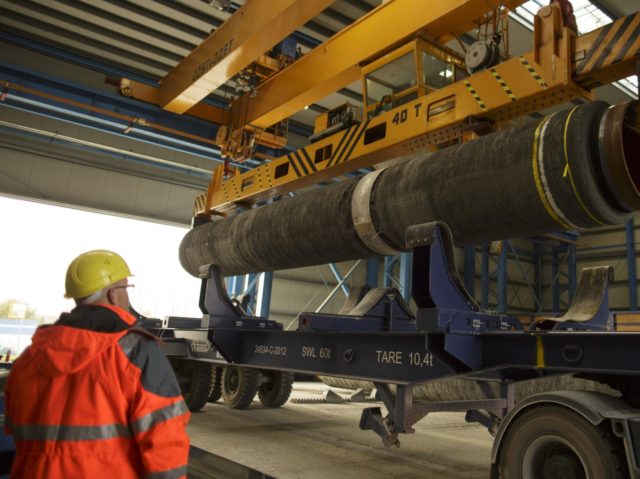Europe’s ‘heavy dependence’ on Russian gas for energy has left nations on the continent scrambling for alternatives over supply fears.
As European alarm over Ukraine continues, EU countries have been left scrambling for alternatives to natural gas supplied by Russia, with UK Prime Minister Boris Johnson suggesting the continent’s “heavy dependence” could affect how nations respond to geopolitical issues.
Germany in particular — which receives reportedly a third of its gas supply from Russia — has recently been praised by Russia as one of its “main partners in Western Europe” not long after the country blocked so-called “lethal aid” from being sent to Ukraine from other NATO member states.
According to a report by The Guardian, Europe has begun looking as far afield as Australia to bolster its gas supply in case supply from Russia is cut off completely.
However, according to British PM Boris Johnson, while the UK is “in a stronger position to resist the Russian gas blackmail” — with Russian supply only making up three per cent of UK gas — he expressed concerns regarding the position of other allies.
“I think the house needs to understand that one of the big issues that we all face in dealing with Ukraine, in dealing with Russia, is the heavy dependence of our European friends in particular on Russian gas,” Johnson told parliament.
Germany may be one of those countries, having already blocked the export of arms from ally Estonia to Ukraine.
The country also appears very reluctant to impose sanctions on Russian projects, such as the Nord Stream 2 gas pipeline.
Russia even praised the European country on Wednesday, saying that there had been no slowdown in communications between Germany and Russia since left-wing Chancellor Olaf Scholz took power.
In comments that appeared to amount to Russia thanking Germany for being well behaved, a Russian presidential spokesman said according to Russian News Agency TASS: “It hasn’t been long [since Scholz took office], undoubtedly, the chancellor has a lot of domestic issues to tackle, we can see Western Europe’s frenzy about Ukraine and so on”.
“Germany is one of our main partners in Western Europe and we very much value our relations, we do expect that they will continue to flourish,” the spokesman continued.
European Gas Reserves Dwindle, Prices Soaring, Cold Winter Could Mean ‘Gas Disaster’ https://t.co/eyjh3zT5AJ
— Breitbart London (@BreitbartLondon) January 13, 2022
Germany is not the only European country struggling with a heavy reliance on Russian fossil fuels.
Gas prices across the bloc have continued to soar in recent months, partially as a result of Russian suppliers cutting the volume going to Europe.
Ireland’s Minister for Foreign Affairs, Simon Coveney, has warned that the Ukraine crisis posed a risk to the nation’s energy security, with sanctions possibly resulting in the hampering of coal deliveries needed to power Ireland’s largest power station.
French finance minister Bruno Le Maire has meanwhile criticised Europe’s reliance on Russia for energy, arguing that nuclear energy would help build up a “strategic independence” regarding energy, according to the Irish Independent.
“What’s happening at the Russian border, and at the Ukrainian border at the moment, is going to show us, in an increasingly obvious way, that the energy dependence of Europe is something which knows no price,” the minister said. “We cannot continue to be as dependent on Russian gas, simply because this limits the political independence of Europe.”
The United States has meanwhile begun finalising plans to divert supplies to Europe in the event that Russia does cut off the supply of natural gas.
“To ensure Europe is able to make it through the winter and spring we expect to be prepared to ensure alternative supplies covering a significant majority of the potential shortfall,” The Guardian reports a senior US official as saying.

COMMENTS
Please let us know if you're having issues with commenting.